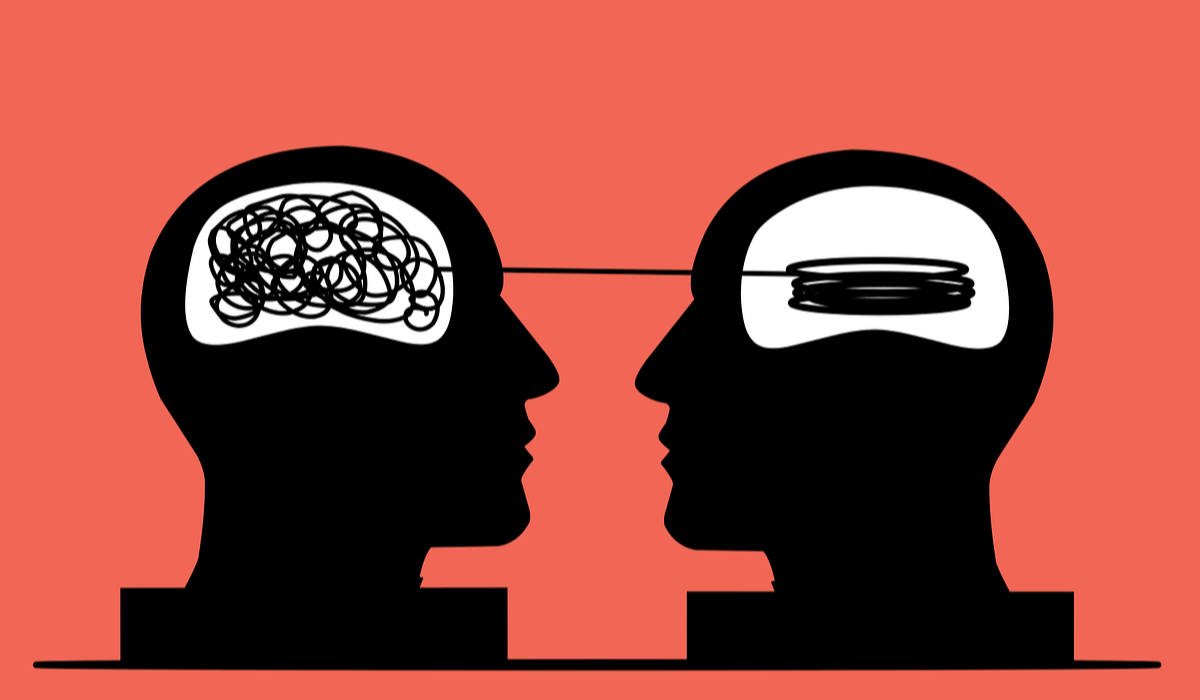Doctor Visits for Neurodivergent Folks
If there is one thing I have learned about myself in my own autism journey that has also been supported by the clients I have been working with, it's...

I have been having so many conversations lately with friends, family, and clients about neurodivergence. Neurodivergence has become my latest special interest (more on that in a later blog), and one of the questions I keep hearing from others is: how do I learn to unmask?! I have to admit that I have not been the most helpful counselor in those moments as I, too, have been wondering that very thing. Up until very recently, the answer has been a very distressed, "I don't know!" I have some good news, though - I think I finally have some real advice.
Before we even begin, you may be wondering what neurodivergence even is. At its most basic, neurodivergence is a pattern of cognitive function (or brain function) that is different from the norm. There's a lot to go in to with that definition, so if you'd like some more info, check out my previous blog.
When folks come into the therapy room to work on their experience of the world and start to discuss how difficult it has been for them to simply exist, I find that we often get into conversations around a similar theme. When it comes to neurodivergence, much of the distress we (neurodivergent folks) experience is not because of our specific "flavor" of divergence. On the contrary, it's the expectations, both implicit and explicit, from the neurotypical world that are distressing.
All humans are driven by rules, and at their most basic, rules centered around acceptance. There are literal reactions in the brain to perceived or actual rejection that look (and as such feel) the exact same way that physical pain looks in the brain. It makes sense from a survival standpoint, too. If caveman Whitney gets rejected by the group, I'm much less likely to be able to protect myself and find enough food to survive. Acceptance into a group means survival.
We are taught from a very early age how to get along in the world and get our needs met:
As we get older, the rules become more complex, less explicitly stated, and more nuanced:
Navigating the world and our social relationships becomes more and more difficult. Being good at following these rules sometimes helps, but as we grow up, we start to discover the situations where the rules are incomplete or sometimes even just plain wrong. With a focus on not hurting feelings, for example, what started out as a way to learn empathy for others becomes a tendency to put others first and ourselves last at all times. We become people-pleasers, vulnerable to abuse, and lose sight of what we are even feeling and thinking in the first place.
Focusing on following rules becomes the only option for our brains, and failure to follow rules leads to physical, emotional, and cognitive pain. And yet, the harder we work to adapt and adjust, the more and more tight our lives become. We cannot be too much, too loud, too weird, too different, too kind, etc. Assimilation is the only option wherein we survive!
Our mental energy is depleted, leading to a decreased ability to figure out the rules and act on them. As we approach burn-out, our masks slip, revealing all of the TOO MUCH and NOT ENOUGH that we have been trying to hide all along. Our physical bodies are riddled with tension. We are exhausted, drained, and lost - and worse still, feeling rejection all the same.
Masking, the working so hard to assimilate and behave according to those rules, feels as if it should be the solution to the problem of feeling different, and yet, it becomes the very problem. The solution, then, is the process of learning to unmask.
Unmasking seems overwhelming, especially for us folks who have been working very hard for a very long time (with a lot of success) to become great at it. For some people, it's difficult to figure out who you even are without the mask. This is the process:
This process is not an easy one, and it definitely isn't a quick one. It's really a new way of living and being - a practice - that will continue on throughout our lives. And it's also a way of living that opens up new doors for relationship with self and others that is more authentic, healing, and free. For some information on the theoretical background of this process of unmasking, check out my previous blog where I discuss Acceptance and Commitment Therapy.
You don't have to start this journey on your own, though. If you could use some support as you explore how neurodivergence does or doesn't make sense for you, please reach out.

If there is one thing I have learned about myself in my own autism journey that has also been supported by the clients I have been working with, it's...

There are so many wonderful things about being a parent. There is nothing better than being able to watch your children grow and change, discover...

Surprise, surprise - another autism blog for you this month! I'm nothing if not honest when I say that this has been my special interest. And my...